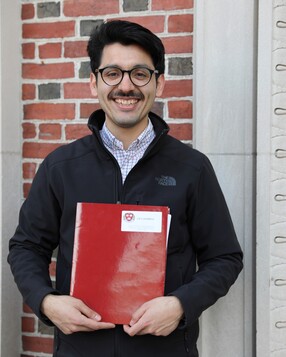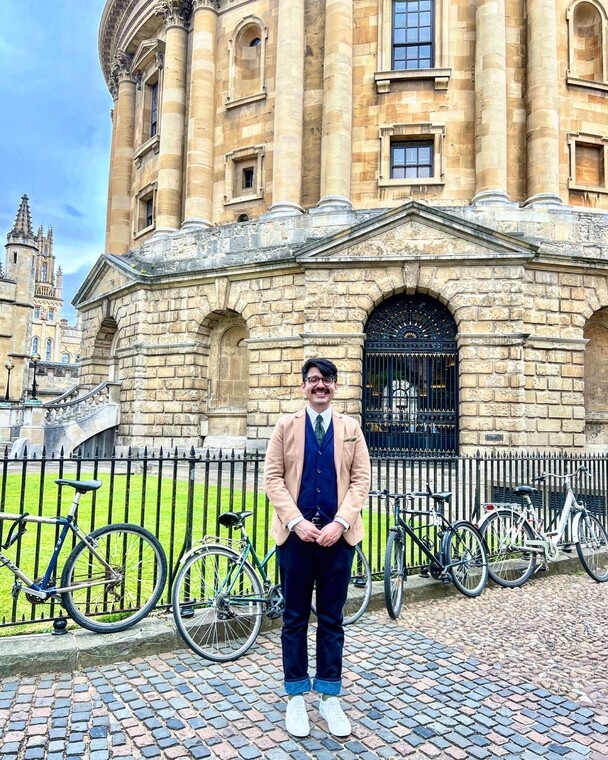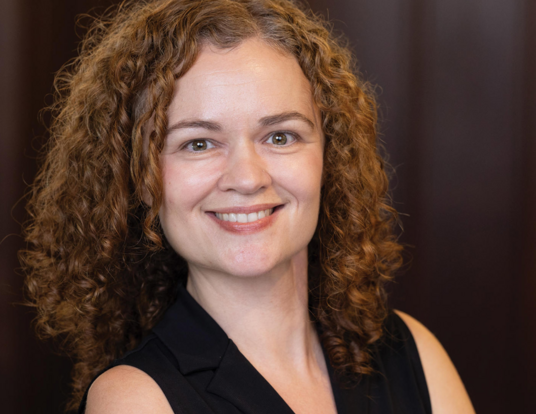Deportation and Its Discontents
Harvard Griffin GSAS Voices: Saúl Ramírez, PhD Student
A 2020 recipient of a Paul and Daisy Soros Fellowship for New Americans and a PhD student in the Department of Sociology, Saúl Ramírez studies the intersection of the criminal legal system and immigration. He discusses why some deportees return to the United States while others don’t, how growing up in a Mexican immigrant family inspires his research, and the experience of feeling seen and accepted at Harvard Griffin GSAS.
Honoring Sacrifice

I have family members who have been incarcerated and deported, and where I grew up, it was not uncommon for people to disappear. At first, I wanted to go to law school for immigrant and criminal defense. I did, but I realized that I had an opportunity to have a broader impact through research.
One significant difference between immigration and criminal court is that immigrants facing deportation are not afforded the same constitutional protections as someone standing trial. People facing deportation do not have a right to an appointed counsel. Research shows that having an attorney represent you significantly impacts your odds of staying in the country and not being held in immigrant detention. There is a gap in the social science literature regarding the consequences of deportation. My work is designed to help fill that gap.
I also want to make my parents proud. They are both Mexican immigrants, and they left the place they called home to give my siblings and me more opportunities. If they were willing to do that, then making them proud is the least that I can do, because no matter how hard school is, it is nothing compared to the struggles of immigrants who were willing to move to a whole new, unknown place. I am always trying to make those sacrifices worth it.
To Come Back or Never Return
One of the questions I explore in my research is why some deported migrants return to the United States and others don’t. To get a better understanding, I interviewed two different groups of Mexican deportees—those who were deported and came back to the US, and those who stayed in Mexico.
Many people come to the US when they are very young. They feel like they belong. They call the United States home. When these younger migrants get deported, they come back to the United States because they were raised here, they went to school here, even though they were born in Mexico.
Another reason why these deportees return to the United States is because they want to reunite with their families—parents trying to come back to their children or children following their parents who came first.

Among deportees who did not come back, the primary reason wasn’t a lack of interest but because of the fear of being apprehended and detained. Older deportees might say that they’re not in a position to be running through a desert or swimming across a river, or they might have started families in Mexico and have more ties there. Many of the deportees who never returned graduated high school in the United States and they speak English. In Mexico, they can get better-paying jobs. Many of them worked at call centers with fellow deportees. They found a community in Mexico.
When I finish this work, I will compare the consequences of deportation with the consequences of incarceration, see how it affects job outcomes and mental health, and investigate the interplay between the two.
The Gift of Engagement
When I had my prospectus hearing earlier this year, my committee and I had a question-and-answer session about what I had in mind for my dissertation. They grappled with my ideas deeply. This meant a lot to me because it symbolized the transition from consuming research to generating knowledge. The positive feedback and the critical engagement with ideas were gifts, and I received them from professors I have looked up to for years.
Sometimes, being a PhD candidate at Harvard feels a little surreal. All I can ask of my career is to genuinely like what I do—and I really enjoy research and teaching. It has been so rewarding to do both and to meet people who are receptive to my scholarship and teaching style.
Get the Latest Updates
Join Our Newsletter
Subscribe to Colloquy Podcast
Simplecast



